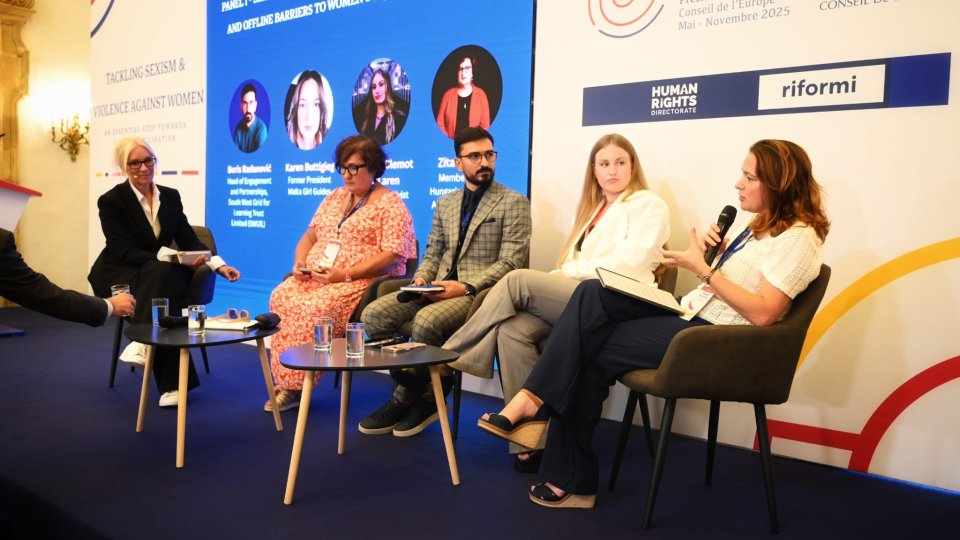On 17–18 September 2025, SWGfL had the privilege of joining the Annual Conference of the Council of Europe’s Gender Equality Commission (GEC), held under the theme “Tackling sexism and violence against women: an essential step towards equal participation.”
The conference brought together policymakers, representatives of international organisations, civil society leaders and academics to address one of the most urgent challenges facing democracies today: the persistent sexism and violence that undermine women’s equal participation in political life.
The Barriers Towards Equal Participation
Our own Boris Radanovic, Head of International Devlopment at SWGfL, took part in the first panel discussion: “Sexism and violence in political spaces: online and offline barriers to women’s equal participation.”
This session explored how women in politics continue to face harassment, intimidation, and even sexual violence within political parties, institutions, and public debate. With the digital sphere now central to democratic engagement, the panel also examined the rise of technology-facilitated violence, including online harassment, disinformation campaigns, deepfake threats, and AI-driven abuse (all of which disproportionately target women leaders and candidates).
Boris highlighted SWGfL’s role in developing practical solutions towards online harm, such as StopNCII.org which is now seen as a leading global solution to combat NCII abuse. It was presented as a victim centred, tech enabled solution that has supported thousands of people around the world.
Key discussions at the conference
Over the two days, participants engaged in discussions across two main areas:
- Breaking down barriers to participation – Addressing the sexism and violence, both online and offline, that silence women in politics. The focus was on creating stronger legal protections, tackling hate speech, and holding institutions accountable for ensuring safer spaces for women’s participation. Particular attention was given to emerging threats from technology and the importance of developing effective responses to online abuse.
- The future of women in politics – Exploring the growing anti-feminist backlash and restrictive narratives that seek to roll back women’s rights. Speakers examined how political parties and institutions can counter these trends by strengthening gender quotas, introducing parity laws, and fostering inclusive political cultures. Real-life experiences of women politicians and activists were shared, highlighting the personal and professional toll of sexism and violence, while also underlining pathways forward for a more inclusive democracy.
Standing against barriers to participation
As the conference made clear, sexism and violence (whether online or offline) remain powerful deterrents to women’s political engagement. These barriers weaken not only women’s leadership but also the democratic process itself. Tackling them requires systemic change: stronger laws and protections, cultural transformation within political institutions, and safer digital environments where women can speak freely without fear.






